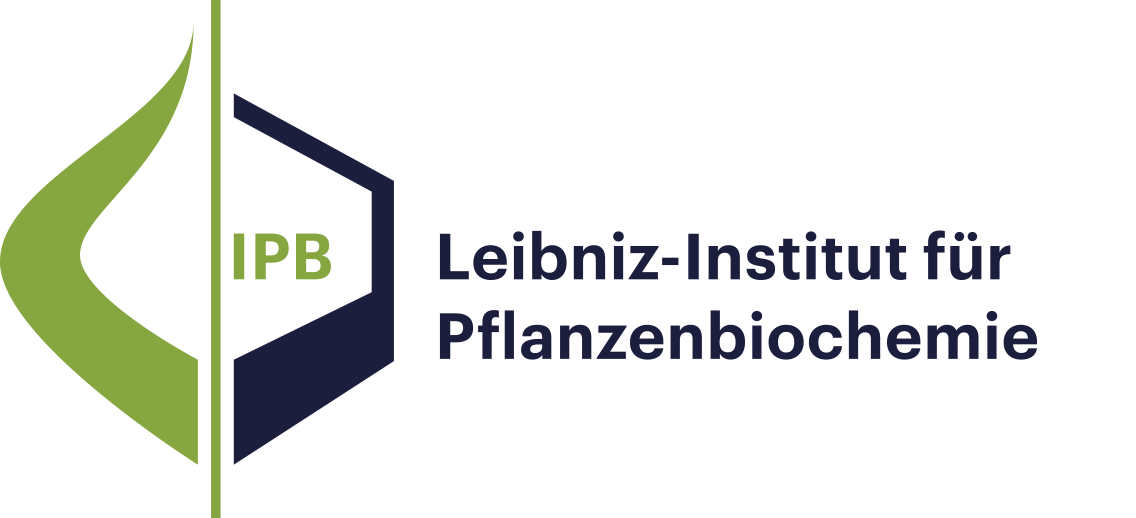- Ergebnisse als:
- Druckansicht
- Endnote (RIS)
- BibTeX
- Tabelle: CSV | HTML
Preprints
Preprints
Publikation
Leitbild und Forschungsprofil
Molekulare Signalverarbeitung
Natur- und Wirkstoffchemie
Biochemie pflanzlicher Interaktionen
Stoffwechsel- und Zellbiologie
Unabhängige Nachwuchsgruppen
Program Center MetaCom
Publikationen
Gute Wissenschaftliche Praxis
Forschungsförderung
Netzwerke und Verbundprojekte
Symposien und Kolloquien
Alumni-Forschungsgruppen
Publikationen
Preprints
Perception and transduction of temperature changes result in altered growth enabling plants to adapt to increased ambient temperature. While PHYTOCHROME-INTERACTING FACTOR4 (PIF4) has been identified as a major ambient temperature signaling hub, its upstream regulation seems complex and is poorly understood. Here, we exploited natural variation for thermo-responsive growth in Arabidopsis thaliana using quantitative trait locus (QTL) analysis. We identified GIRAFFE2.1, a major QTL explaining ~18% of the phenotypic variation for temperature-induced hypocotyl elongation in the Bay-0 x Sha recombinant inbred line population. Transgenic complementation demonstrated that allelic variation in the circadian clock regulator EARLY FLOWERING3 (ELF3) is underlying this QTL. The source of variation could be allocated to a single nucleotide polymorphism in the ELF3 coding region, resulting in differential expression of PIF4 and its target genes, likely causing the observed natural variation in thermo-responsive growth. In combination with other recent studies, this work establishes the role of ELF3 in the ambient temperature signaling network. Natural variation of ELF3-mediated gating of PIF4 expression during nightly growing periods seems to be affected by a coding sequence quantitative trait nucleotide that confers a selective advantage in certain environments. In addition, natural ELF3 alleles seem to differentially integrate temperature and photoperiod cues to induce architectural changes. Thus, ELF3 emerges as an essential coordinator of growth and development in response to diverse environmental cues and implicates ELF3 as an important target of adaptation.
Preprints
Background Global increase in ambient temperatures constitute a significant challenge to wild and cultivated plant species. Forward genetic analyses of individual temperature-responsive traits have resulted in the identification of several signaling and response components. However, a comprehensive knowledge about temperature sensitivity of different developmental stages and the contribution of natural variation is still scarce and fragmented at best.Results Here, we systematically analyze thermomorphogenesis throughout a complete life cycle in ten natural Arabidopsis thaliana accessions grown in four different temperatures ranging from 16 to 28 °C. We used Q10, GxE, phenotypic divergence and correlation analyses to assess temperature sensitivity and genotype effects of more than 30 morphometric and developmental traits representing five phenotype classes. We found that genotype and temperature differentially affected plant growth and development with variing strengths. Furthermore, overall correlations among phenotypic temperature responses was relatively low which seems to be caused by differential capacities for temperature adaptations of individual accessions.Conclusion Genotype-specific temperature responses may be attractive targets for future forward genetic approaches and accession-specific thermomorphogenesis maps may aid the assessment of functional relevance of known and novel regulatory components.
Publikation
BackgroundPerception and transduction of temperature changes result in altered growth enabling plants to adapt to increased ambient temperature. While PHYTOCHROME-INTERACTING FACTOR4 (PIF4) has been identified as a major ambient temperature signaling hub, its upstream regulation seems complex and is poorly understood. Here, we exploited natural variation for thermo-responsive growth in Arabidopsis thaliana using quantitative trait locus (QTL) analysis.ResultsWe identified GIRAFFE2.1, a major QTL explaining ~18 % of the phenotypic variation for temperature-induced hypocotyl elongation in the Bay-0 x Sha recombinant inbred line population. Transgenic complementation demonstrated that allelic variation in the circadian clock regulator EARLY FLOWERING3 (ELF3) is underlying this QTL. The source of variation could be allocated to a single nucleotide polymorphism in the ELF3 coding region, resulting in differential expression of PIF4 and its target genes, likely causing the observed natural variation in thermo-responsive growth.ConclusionsIn combination with other recent studies, this work establishes the role of ELF3 in the ambient temperature signaling network. Natural variation of ELF3-mediated gating of PIF4 expression during nightly growing periods seems to be affected by a coding sequence quantitative trait nucleotide that confers a selective advantage in certain environments. In addition, natural ELF3 alleles seem to differentially integrate temperature and photoperiod information to induce architectural changes. Thus, ELF3 emerges as an essential coordinator of growth and development in response to diverse environmental cues and implicates ELF3 as an important target of adaptation.

